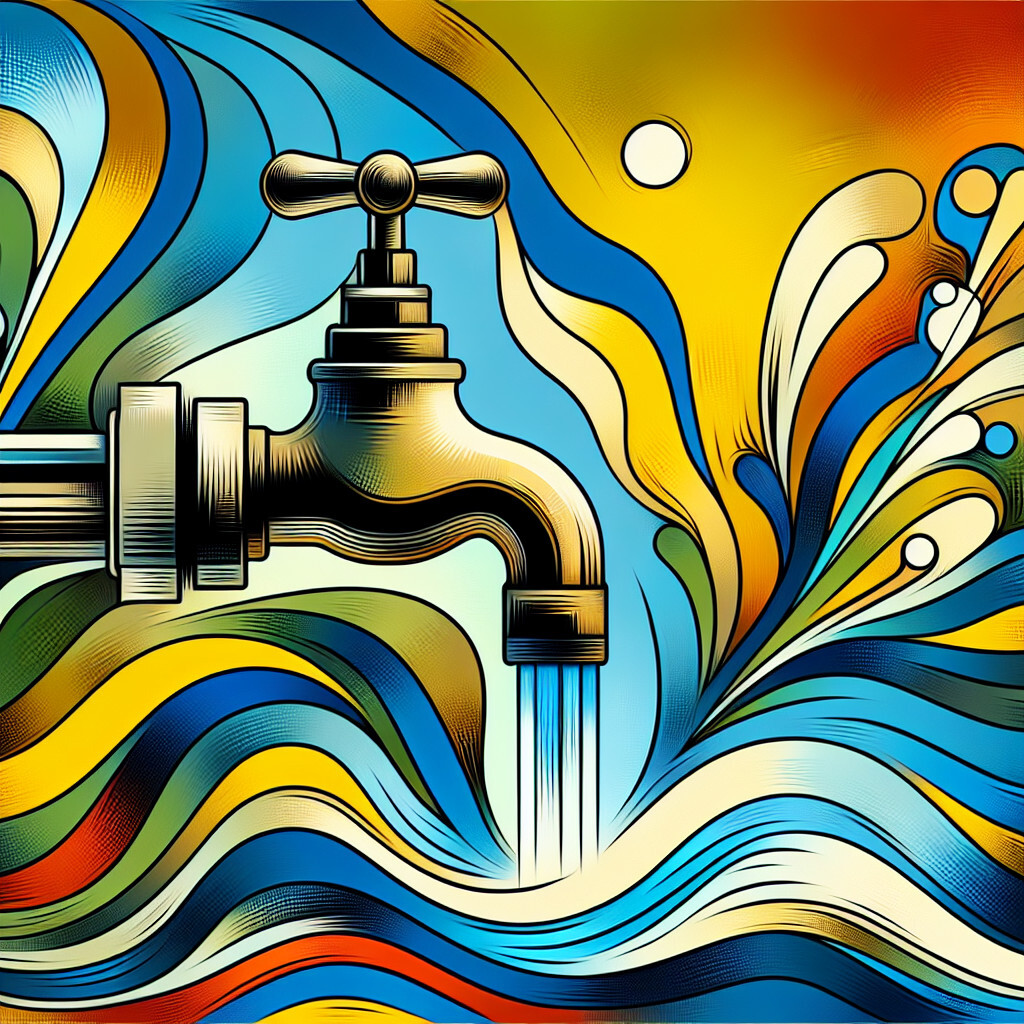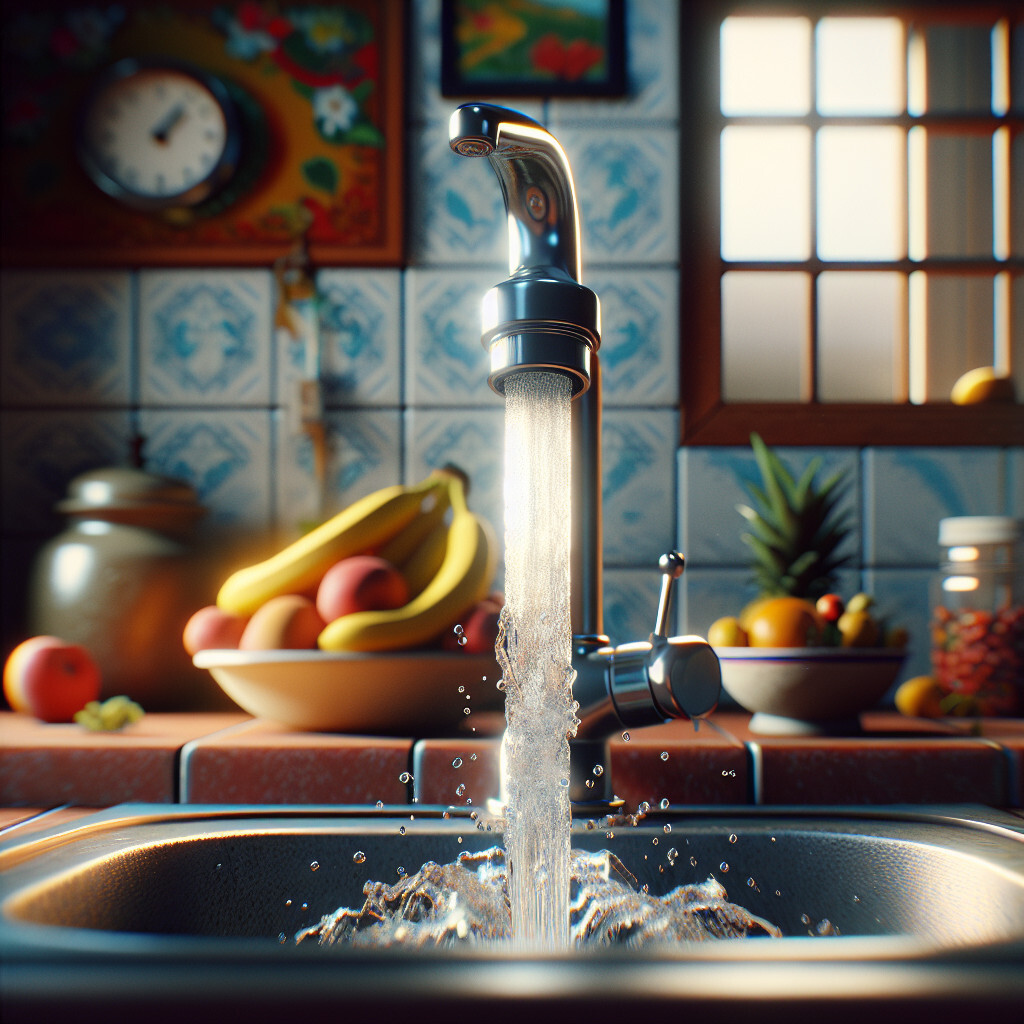-
Table of Contents
“Venezuela’s Tap Water: A Crisis in Clarity.”
Introduction

The tap water in Venezuela is currently a subject of concern due to the country’s ongoing economic and political crisis. The quality and availability of tap water vary greatly across different regions, with many areas experiencing frequent water shortages and poor water quality. Infrastructure decay, lack of maintenance, and power outages have led to a decline in the water treatment process, making the tap water potentially unsafe for consumption without proper treatment. Contaminants such as bacteria, heavy metals, and other pollutants are often found in the water supply, posing serious health risks. Therefore, many residents resort to bottled water, water filters, or boiling water to ensure its safety for drinking.
Understanding the Quality of Tap Water in Venezuela
Venezuela, a country known for its rich oil reserves and diverse landscapes, has been grappling with a myriad of socio-economic challenges in recent years. Among these, the quality of tap water has emerged as a significant concern for its citizens. The situation is such that the question, “How is the tap water in Venezuela?” has become a common query among both locals and visitors alike.
The quality of tap water in Venezuela varies greatly across the country. In some regions, particularly in urban areas, the tap water is treated and is generally safe for consumption. However, in many other parts of the country, especially in rural and remote areas, the tap water is often untreated and can pose serious health risks.
The primary reason for this disparity in water quality is the country’s crumbling infrastructure. Venezuela’s water treatment facilities, pipelines, and distribution systems have been severely neglected over the years due to economic instability and lack of investment. This has resulted in frequent water shortages and contamination of the water supply with harmful bacteria and pollutants.
Moreover, the country’s ongoing political and economic crisis has exacerbated the situation. The government’s inability to adequately fund and maintain the water infrastructure has led to a decline in the quality of tap water. This has been further compounded by the lack of regular testing and monitoring of the water supply, making it difficult to ascertain the exact quality of the tap water in many parts of the country.
The poor quality of tap water in Venezuela has had serious implications for public health. Many Venezuelans have fallen ill due to waterborne diseases such as cholera, typhoid, and dysentery. The situation is particularly dire for children and the elderly, who are more susceptible to these diseases.
In response to this crisis, many Venezuelans have resorted to boiling their tap water or buying bottled water. However, these are not viable long-term solutions. Boiling water can kill bacteria but does not remove chemical pollutants, while buying bottled water is expensive and contributes to plastic waste.
International organizations and non-profits have stepped in to help address the water crisis in Venezuela. They have provided water filters and purification tablets to communities in need and have also launched initiatives to repair and upgrade the country’s water infrastructure. However, these efforts are only a temporary fix and do not address the root causes of the problem.
In conclusion, the quality of tap water in Venezuela is a pressing issue that needs immediate attention. The country’s deteriorating water infrastructure, coupled with its ongoing political and economic crisis, has resulted in a decline in the quality of tap water. This has had serious implications for public health and has forced many Venezuelans to resort to unsustainable solutions. While international aid has provided some relief, it is clear that a more comprehensive and long-term solution is needed. This includes investing in the country’s water infrastructure, implementing regular testing and monitoring of the water supply, and addressing the underlying political and economic issues that have contributed to this crisis.
The Crisis of Clean Tap Water in Venezuela: An In-depth Analysis
The crisis of clean tap water in Venezuela is a pressing issue that has been escalating over the past few years. The country, once known for its abundant natural resources, is now grappling with a severe water shortage that has left millions without access to safe, clean drinking water. This crisis is not only a matter of inconvenience but a serious public health concern that demands immediate attention.
The root of the problem lies in the country’s crumbling infrastructure. Venezuela’s water system, like many of its public services, has been neglected for years. The lack of maintenance and investment has led to the deterioration of the water supply network, resulting in frequent water cuts and the contamination of the water that does reach households. The situation is further exacerbated by the country’s economic crisis, which has left the government with limited resources to address the problem.
The quality of tap water in Venezuela has been a subject of concern for many years. Reports indicate that the water often comes out brown and carries a strong, unpleasant odor. Laboratory tests have revealed the presence of harmful bacteria and heavy metals, such as lead and mercury, in the water. These contaminants pose serious health risks, including gastrointestinal diseases and neurological damage.
The scarcity and poor quality of tap water have forced many Venezuelans to resort to unsafe sources of water. Rivers, streams, and even sewage drains are being used as sources of water for drinking, cooking, and bathing. This, in turn, has led to an increase in waterborne diseases, such as cholera and dysentery, further straining the country’s already overwhelmed healthcare system.
The government’s response to the crisis has been inadequate, to say the least. Despite promises of improvements and investments in the water sector, the situation on the ground remains dire. The lack of transparency and accountability has further fueled public frustration and mistrust in the government’s ability to effectively address the crisis.
International organizations and NGOs have stepped in to provide emergency water supplies and sanitation facilities. However, these efforts are merely a band-aid solution to a much deeper problem. Without a comprehensive plan to overhaul the country’s water system and address the underlying issues, the crisis is likely to persist.
The crisis of clean tap water in Venezuela is a stark reminder of the importance of water as a fundamental human right. It underscores the need for governments to invest in and maintain their water infrastructure to ensure the provision of safe, clean water for all their citizens. It also highlights the role of international cooperation in addressing such crises, particularly in countries grappling with economic and political instability.
In conclusion, the situation of tap water in Venezuela is a complex issue that requires urgent attention and action. It is a crisis that goes beyond the inconvenience of not having access to clean water. It is a public health emergency that threatens the lives and well-being of millions of Venezuelans. As such, it demands a comprehensive, sustainable solution that addresses the root causes of the problem and ensures the provision of safe, clean water for all.
The Impact of Venezuela’s Economic Situation on Tap Water Quality
Venezuela, a country known for its rich oil reserves and breathtaking landscapes, has been grappling with a severe economic crisis for several years. This crisis has had far-reaching implications, affecting various aspects of life, including the quality of tap water. The economic situation in Venezuela has significantly impacted the quality of tap water, leading to a myriad of health and sanitation issues.
The economic downturn in Venezuela has led to a lack of resources for maintaining and upgrading water treatment facilities. As a result, the water supply infrastructure has deteriorated, leading to frequent water shortages and poor water quality. The lack of regular maintenance has resulted in the contamination of tap water with harmful bacteria and other pollutants. This has raised serious health concerns, as contaminated water can lead to diseases such as cholera, typhoid, and dysentery.
Moreover, the economic crisis has also led to a shortage of chemicals needed for water treatment. Chlorine, a key chemical used in water purification, has become scarce due to import restrictions and lack of funds. This has further exacerbated the problem of water contamination. Without proper treatment, tap water in many parts of Venezuela has become unsafe for consumption.
The situation is further compounded by the country’s power crisis. Frequent power outages disrupt the operation of water pumps, leading to irregular water supply. In many areas, residents have access to tap water only for a few hours a day. This has forced many Venezuelans to rely on untreated water from wells and rivers, increasing the risk of waterborne diseases.
The impact of the economic crisis on tap water quality has been particularly severe in urban areas. In cities like Caracas, the capital of Venezuela, the water infrastructure is old and in dire need of repair. However, due to the economic situation, the necessary upgrades have been delayed or cancelled. As a result, residents often receive discolored and foul-smelling tap water, indicating high levels of contamination.
The poor quality of tap water has also led to a surge in the demand for bottled water. However, due to hyperinflation, the cost of bottled water has skyrocketed, making it unaffordable for many Venezuelans. This has further deepened the water crisis, leaving many residents without access to safe drinking water.
In conclusion, the economic crisis in Venezuela has had a profound impact on the quality of tap water. The lack of resources for maintaining water infrastructure, coupled with the shortage of water treatment chemicals and frequent power outages, has led to widespread water contamination. This has raised serious health concerns and has left many Venezuelans without access to safe drinking water. As the economic situation continues to deteriorate, the water crisis in Venezuela is likely to worsen, underscoring the urgent need for international aid and intervention.
Health Implications of Consuming Tap Water in Venezuela
In recent years, the quality of tap water in Venezuela has been a subject of significant concern. The health implications of consuming this water have been increasingly alarming, with numerous reports of waterborne diseases and other health issues linked to the consumption of untreated or poorly treated tap water. This article aims to shed light on the current state of tap water in Venezuela and its potential health risks.
Venezuela, once known for its robust public water system, has seen a dramatic decline in the quality and availability of its tap water due to a combination of economic crisis, infrastructure decay, and lack of maintenance. The deterioration of the water supply system has led to the delivery of water that is often turbid, discolored, and carries a foul odor. This has raised serious questions about the safety of consuming such water and the potential health risks it poses.
One of the most immediate health implications of consuming tap water in Venezuela is the risk of waterborne diseases. These include cholera, typhoid, and dysentery, among others. These diseases are typically caused by the ingestion of water contaminated with human or animal feces, which contain harmful bacteria, viruses, or parasites. The lack of proper water treatment and sanitation in Venezuela has increased the risk of such diseases, leading to widespread outbreaks in recent years.
In addition to waterborne diseases, the consumption of contaminated tap water can also lead to other health issues. For instance, the presence of heavy metals such as lead and mercury in the water can cause serious health problems, including neurological damage and kidney disease. Moreover, the high levels of chlorine used to disinfect the water can also pose health risks. While chlorine is effective in killing many types of bacteria and viruses, excessive amounts can lead to respiratory problems and other health issues.
Furthermore, the scarcity of clean tap water has forced many Venezuelans to rely on unsafe sources of water, such as rivers and wells, further exacerbating the health risks. These sources are often contaminated with harmful substances, including industrial waste and agricultural runoff, which can lead to a range of health problems, from skin irritations to more serious conditions like cancer.
The health implications of consuming tap water in Venezuela are further compounded by the country’s ongoing economic crisis, which has led to a shortage of medicines and medical supplies, making it difficult for people to receive treatment for water-related illnesses. This has resulted in a public health crisis, with a significant increase in morbidity and mortality rates.
In conclusion, the consumption of tap water in Venezuela poses serious health risks due to the poor quality of the water and the lack of proper treatment and sanitation. The situation is further exacerbated by the country’s economic crisis, which has made it difficult for people to access clean water and receive medical treatment. As such, it is crucial for the Venezuelan government and international organizations to take urgent action to address this issue and ensure the provision of safe and clean water for all Venezuelans.
Q&A
1. Question: Is the tap water in Venezuela safe to drink?
Answer: No, the tap water in Venezuela is generally not considered safe to drink due to contamination and lack of proper sanitation.
2. Question: What are the common contaminants found in Venezuela’s tap water?
Answer: The common contaminants found in Venezuela’s tap water include bacteria, viruses, heavy metals, and harmful chemicals.
3. Question: How is the quality of tap water in Venezuela compared to other countries?
Answer: The quality of tap water in Venezuela is significantly lower compared to many other countries, particularly those in the developed world.
4. Question: What measures are being taken to improve the quality of tap water in Venezuela?
Answer: Efforts are being made to improve water infrastructure and sanitation systems, but progress is slow due to economic and political challenges.
Conclusion
The tap water in Venezuela is generally not safe to drink due to contamination and lack of proper sanitation and filtration systems. The country’s economic crisis has led to a decline in the maintenance of water infrastructure, resulting in poor water quality. Therefore, it’s recommended to drink bottled or boiled water.






